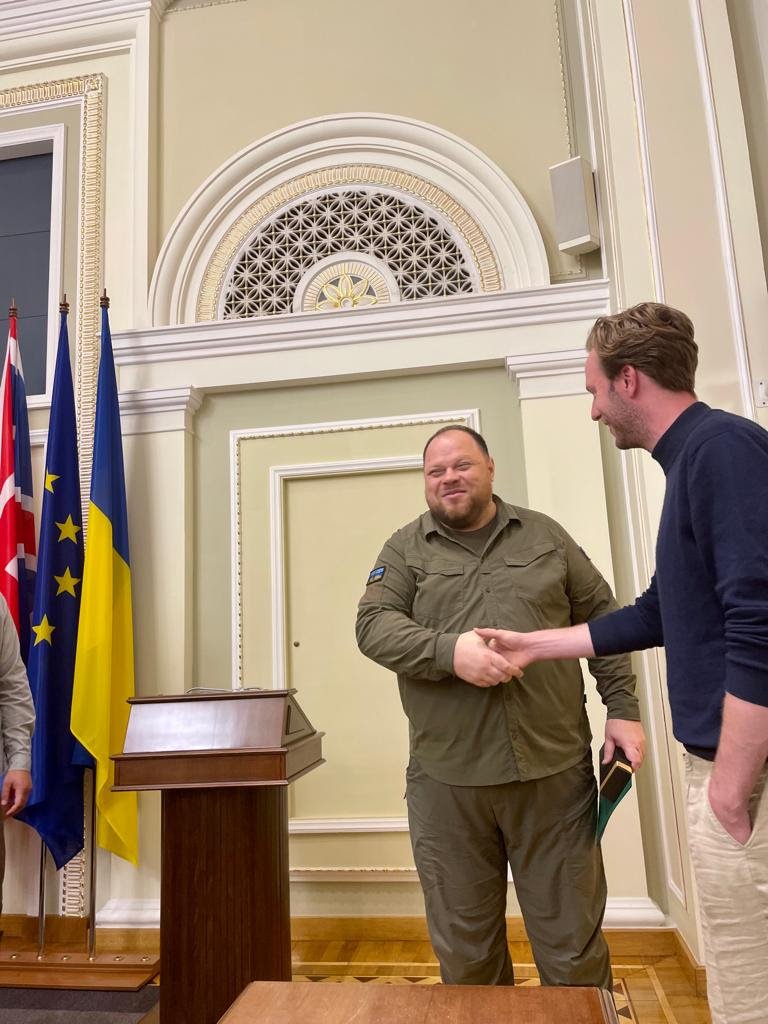Damian was in Ukraine last week – here is what the EU should do next
Hi everyone,
I hope you had a nice summer break.
Last week I travelled to Kyiv (22-25 August) to see the situation with my own eyes and show my solidarity during their Independence Day. I did not want to do a 'show trip' to a war zone, but Ukrainians convinced me that visiting Ukraine is important for visibility reasons & to inform my own policy-making.
Now that I am back, I wanted to share my thoughts on what Europe should do next.
Regards
Damian Boeselager
01 We must speed up accession talks with Ukraine. Europe should show solidarity with a country that is ambitious to join the bloc and has made clear progress over the last months: Ukraine has over 400 officials working on European integration around the clock and it has prepared 150 laws aiming to reform the judicial, political and economic systems of the country. The Prime Minister will be travelling to Brussels to update us on the progress in September.
In the next plenary sessions, Parliament should adopt a resolution in support of Ukraine to enter the next phase of accession talks as soon as possible.
The European Parliament should establish an inter-parliamentary structure with legal and civil service experts to help Ukrainian officials understand and interpret the EU acquis.

02 The EU should sanction party members of the Russian Duma. In the last months, there was a lot of media attention on the idea of introducing a visa ban against all Russians. Personally, I still don't feel comfortable with this idea – especially, since it would prevent (or at least make it much more difficult) for activists, deserters and opposition to flee Russia. As an alternative, in the EU's 8th package of sanctions, we should adopt a visa ban for all party members of parties represented in the Russian Duma and warn about potential sanctions on their assets in the future. That is almost 10 million Russians! Such measures would encourage Russians, including some influential figures in Russia and abroad, to distance themselves from party politics and stop financially sponsoring the Duma's political agenda.
03 Ukraine's reconstruction must start now. The country's economy is in freefall. Current inflation is almost at 20%, and is expected to rise to 30% at the end of the year. Key sectors, including the steel industry and water logistics are non-functional. Unemployment rate is at 35% and the country is in desperate need of macro-financial assistance (grants) in order to be able to pay it's teachers, soldiers, and pensioners during the next months. Ukraine cannot postpone rebuilding its country & Europe's support must begin now. Europe could use its past success experience of #NextGenEU as a blueprint to build a dedicated recovery fund for Ukraine.
04 It is crucial for the EU that Ukraine wins this war. Ukraine, under the powers of a democratically elected government is currently defending its country against a fascist and imperialist invader. This war is about protecting our common European values and interests, and defending democracy and the right to individual freedom. In the coming months, we must continue to support Ukraine militarily, economically and politically. Without the support of its international partners, Ukraine might fail to win this war. Let’s help and make sure Ukraine can join the EU fast.
Agenda of my trip:
Day 1: high-level officials meetings with:
Ruslan Stefanchuk, Speaker of the Verhovna Rada
Olha Stefanishyna, Deputy PM of European Integration
Ivanna Klympush-Tsintsadze, Chair Committee on Integration of Ukraine
Dmytro Natalukha, Chair Economic Affairs Committee
Ministry of Defence officials
Day 2: Visits to former occupied regions near Kyiv (Irpin, Bucha, Makariv, and Borodyanka) and meetings with:
German Galushchenko, Deputy Minister of Energy
Dmytro Kuleba, Minister of Foreign Affairs
Ihor Zhovkva, Deputy Head of President Zelensky's cabinet